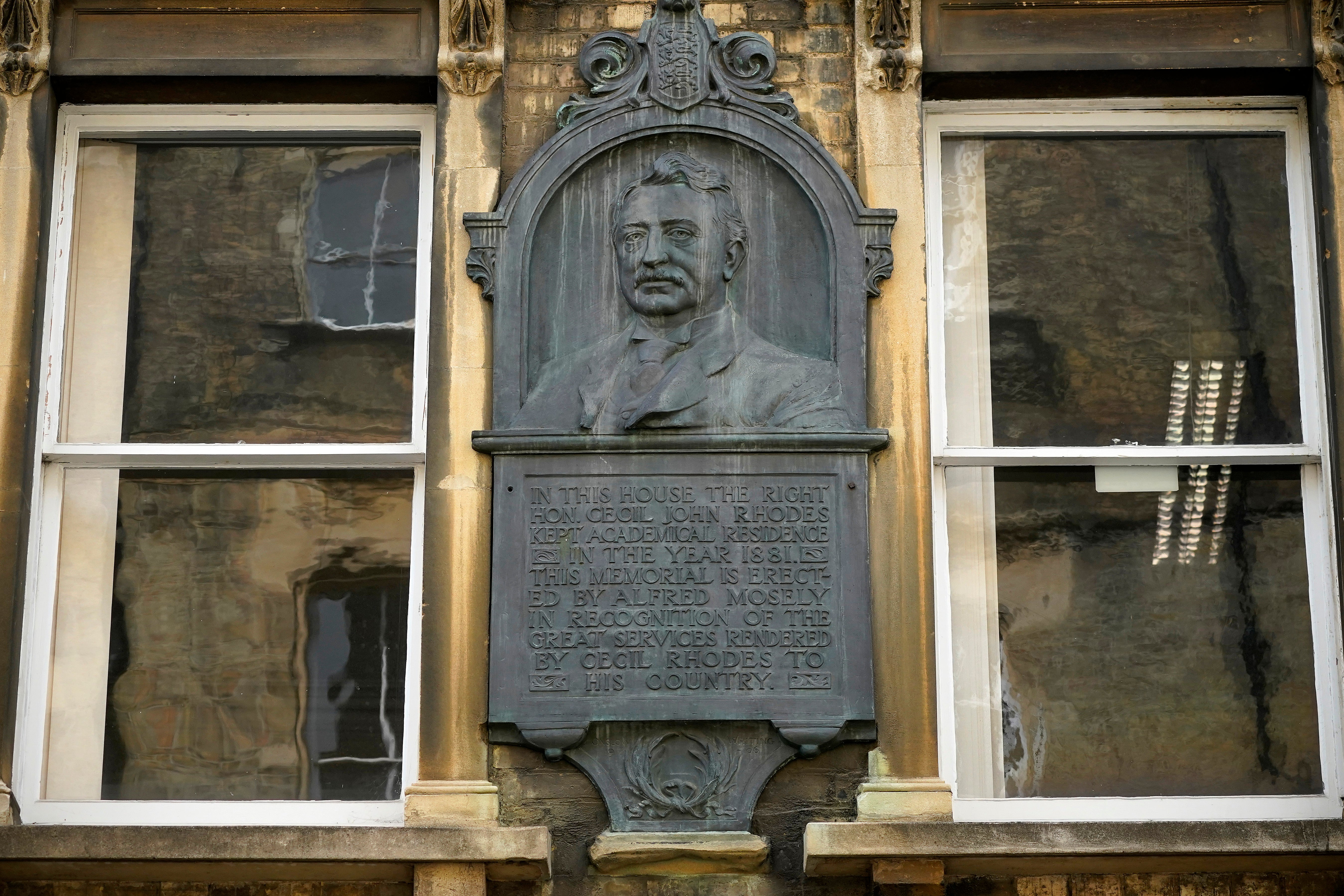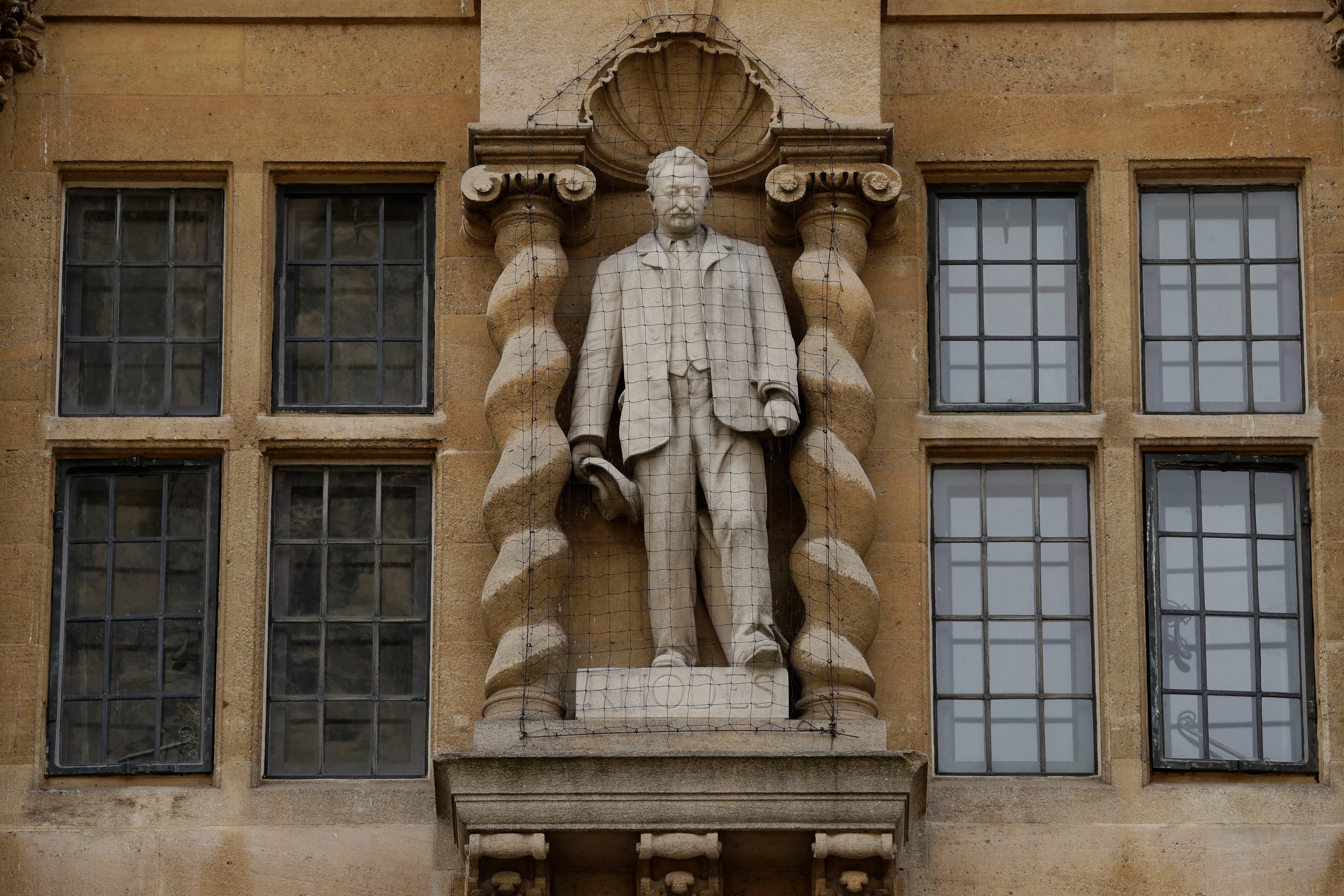Nadine Dorries grants listed status to Cecil Rhodes plaque at Oxford college
Historic England previously said plaque did not merit legal protection

Your support helps us to tell the story
From reproductive rights to climate change to Big Tech, The Independent is on the ground when the story is developing. Whether it's investigating the financials of Elon Musk's pro-Trump PAC or producing our latest documentary, 'The A Word', which shines a light on the American women fighting for reproductive rights, we know how important it is to parse out the facts from the messaging.
At such a critical moment in US history, we need reporters on the ground. Your donation allows us to keep sending journalists to speak to both sides of the story.
The Independent is trusted by Americans across the entire political spectrum. And unlike many other quality news outlets, we choose not to lock Americans out of our reporting and analysis with paywalls. We believe quality journalism should be available to everyone, paid for by those who can afford it.
Your support makes all the difference.Nadine Dorries has granted listed status to a plaque commemorating the British imperialist Cecil Rhodes at a University of Oxford college.
The plaque is adjacent to the statue of Rhodes in Oriel College, where thousands of Rhodes Must Fall campaigners have protested to have the statue removed due to the politician and businessman’s views on colonialism and race.
Historic England previously said that the plaque did not merit legal protection because it lacked the “richness of detail” to make it of national interest.
But the culture secretary said she felt the plaque was of “special historic interest”.

“We are committed to retaining and explaining our heritage so people can examine all parts of Britain’s history and understand our shared past,” a Department for Culture Media and Sport (DCMS) spokesperson said.
Rhodes, a 19th-century merchant and politician in southern Africa, was a student at Oriel and left the college £100,000 (£12.5m today) when he died in 1902.
A staunch supporter of British imperialism, Rhodes founded Rhodesia (now Zimbabwe and Zambia) and the De Beers diamond mining company. His policies as prime minister of the Cape Colony are seen as having set the way for apartheid.
Academics and experts in colonial history have accused the government of “whitewashing” the severity of colonialism and deliberately stoking culture wars as a result of the decision.

Kim Wagner, professor of imperial history at Queen Mary University of London, told The Guardian: “This is simply what one would expect from Nadine Dorries and a discredited government, which has nothing left but the pursuit of its inept culture-war project.
“Cecil Rhodes has become a rallying point for imperiophiliacs, and the slogan to ‘retain and explain’ is just part of the ongoing effort to whitewash his legacy and that of the empire more generally. Luckily, most of us don’t get our history from statues or plaques.”
Last year, the college said it would not remove the statue of Rhodes, despite an independent commission’s recommendation that it be taken down.
Oriel College responded that it would not remove the statue because of the costs and the “complex” planning processes.
Join our commenting forum
Join thought-provoking conversations, follow other Independent readers and see their replies
Comments